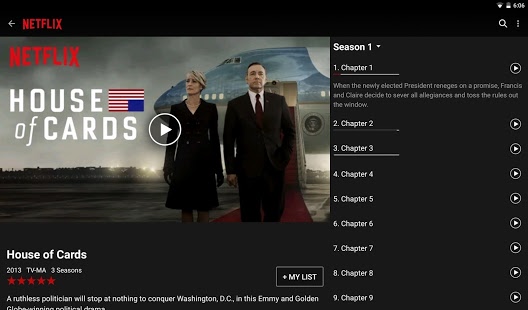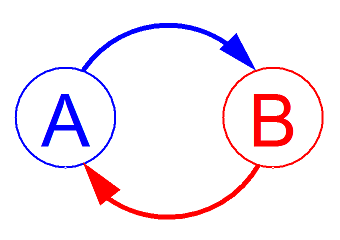Netflix ratings and what they might mean for your real-time feedback program
Everyone's favorite entertainment streaming platform/service Netfilix has been in the news plenty lately.
Their most recent earnings announcement was pretty fantastic, their revenues and reach are climbing steadily, and they continue to set the pace, tone, and standard for the modern entertainment experience. Just about everyone who is a Netflix subscriber loves it, and some think that Netflix (and some other services like Hulu and Amazon Prime), might one day ring the death bell for traditional broadcast networks and cable service providers.
Netflix is a case study example of a company that has managed growth, transition, technological change, and even making some strategic blunders to become one of the digital age's most interesting and influential companies. You might recall that Netflix made quite a stir in the HR/Talent Management space with their famous 'Culture Deck' a few years back. That document, which some have called the most important one in all of Silicon Valley, was seen and shared by thousands.
But why I was interested in posting about Netflix this week has nothing to do with their 'culture deck' or consumer cord cutting or the new season of Orange is the New Black. It is for another element of the Netflix approach I find really interesting and relevant to HR and talent management pros today - their approach and attitude about program ratings, the traditional way most TV programs have been judged, and their creators rewarded.
As consumers of TV we are all at least somewhat aware of ratings. They are reported on regularly. We all hear stories about TV's highest rated shows. And we know that when shows are cancelled, the usual reason is low ratings. In the traditional TV model, ratings are closely monitored, are made public and are widely reported on, and are the ultimate form of either validation and success, or rejection and failure.
Want to know the ratings of any broadcast or cable TV show? That information is not that hard to find.
Want to know the ratings or even the total number of viewers for Netflix shows like Orange or House of Cards? Well, good luck finding out that information. Here is what Netflix thinks about ratings, from a recent piece on Business Insider:
Netflix thinks ratings are bad for television shows, and are a negative force on the talent that produces them.
Last week, executives from the likes of NBC and FX traded barbs with Netflix over ratings transparency.
FX CEO John Landgraf said it’s “ridiculous that we don’t have usage numbers on Netflix," while NBC’s Alan Wurtzel cited data from an outside research company that Netflix’s ratings weren’t all that impressive.
Netflix fired back, not just at NBC’s data, which content chief Ted Sarandos called "remarkably inaccurate," but at the very idea of ratings.
Netflix has always closely guarded its viewership data, so much so that many of its creators don’t even know how well their shows are doing. Tina Fey, who was the co-creator of the Netflix show “Unbreakable Kimmy Schmidt,” said she had no idea how many people were watching the show,according to the Wall Street Journal.
Now Netflix is saying this type of secrecy is actually good for shows. Sarandos said that instant ratings data turns TV into a weekly arms race between networks, and puts “a lot of creative pressure on talent,” Variety reports.
He asserted that the focus on ratings “has been remarkably negative in terms of its effect on shows.”
Quite a bit to take apart from that story but the key for me is not the 'old guard' sniping at Netflix from the NBC exec, but rather the Netflix point of view that a focus on ratings, particularly instant or 'real-time' ratings information is in fact harmful to the creative talent that it is increasingly engaging to produce its content.
It is kind of a remarkable point of view, and in the modern world of digital content delivery and availability of big data and powerful analytical tools, very counter-intuitive. Everything - marketing, politics, sports, and yes even HR and talent management is in an almost lock-step march towards compiling more data, gauging success or failure more discretely, and importantly - providing results and feedback to people much more often.
You can't swing a cat in a room of HR people today and not find at least someone, maybe a few someones, that are scrapping annual performance reviews and shifting towards some kind of alternative program for assessing and hopefully improving employee performance. While these new approaches differ at least some, they almost always have one thing in common - the encouragement of more frequent 'feedback' (if you like 'ratings'), given to employees in the course of a year.
Sure, this 'feedback' is meant to be less formal, more forward-looking, and less frightening than the annual performance review, but strip away the new terms we are using and underneath it all to many employees it is going to feel like you've replaced the dreaded annual performance review with anywhere from 12 to 52 'mini' performance reviews. And that is going to stink worse than any uncomfortable one-hour annual performance review meeting ever did.
The real thing to think about in all this is the effect that feedback/criticism/ratings will have on talented people, especially creative people that are increasingly the difference between organizational success and failure.
Netflix, the paragon of the modern company, culture, and talent engine has decided that less feedback (in form of program ratings), is actually a positive, and beneficial to the creative talent with which it engages, and which it needs to compete and succeed. It thinks for people to do their best, most creative work, they can't be constantly worried, on a week-to-week basis, with ratings and viewer numbers. Netflix is playing the long game.
So what does this mean for you, the HR and talent pro wrestling with these trends and changes in the way 'traditional' performance management has always been done?
It might mean this: Replacing traditional, annual performance reviews with a system that amounts to more frequent, if less formal, performance reviews might be exactly the wrong thing to do if you are trying to get the best, most creative results from your teams.
Or said differently, how many really, really talented people do you know that like to be told how they are doing all of the time?

 Steve
Steve




